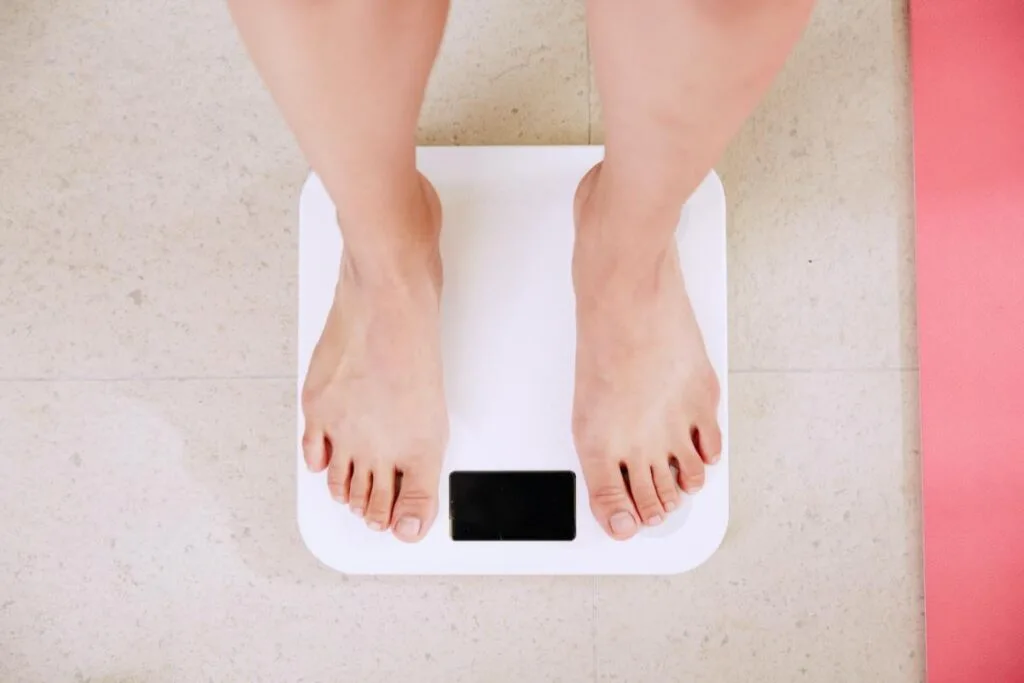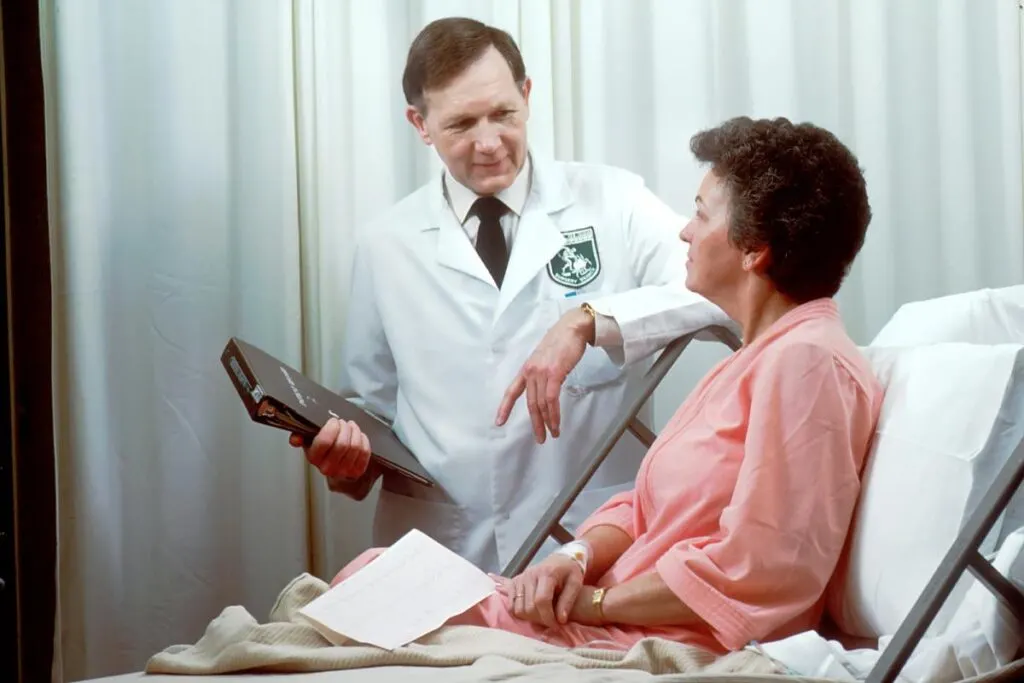Did you know that infertility is more than just a medical problem?
Infertility takes place when couples can’t conceive after having sexual intercourse.
Typically, it may be that one partner can’t contribute to the outset or that a female is not capable of carrying a pregnancy to full term.
Often, infertility is defined after conceiving after a year of regular sexual intercourse without involving any birth control.
Many people feel overwhelmed when they hear the term infertility diagnosis.
If you’re on a mission to conceive a little angel, infertility may affect your personal relationship, deplete your finances, or worse, have a negative impact on you and your partner’s emotional well-being.
Unfortunately, some people don’t have any idea that they are dealing with the symptoms or signs of infertility.
If you want to ensure that you or your partner may be or may not be experiencing infertility, then keep on reading.

Listed below are some of the common signs that it is time to get help, especially from medical experts.
Signs Of Infertility in Women
Common infertility signs in women include:
1. Hair Loss or Hair Growth
PCOS or polycystic ovarian syndrome can cause a small cyst to develop outside the ovaries.
It will also cause the body to produce too many male hormones.
Thus, when you notice that hair starts to grow, most especially in unusual places such as your back, face, chest, or arm, this could be one of the warning signs that you need help.
On the other hand, hair thinning or hair loss could also be a symptom of other health problems related to infertility, such as autoimmune disorders, thyroid problems, or anemia.
2. Irregular Periods
The average cycle of a woman is twenty-eight days long.
However, everything within a few days of that may be considered normal, but these cycles should be consistent.
For instance, women who have a 33-day cycle a month, a 31-day cycle the following month, and follow a 35-day cycle are considered normal periods.
But females whose cycles greatly differ to the extent that they can’t even start to guess when their next period may come is considered an irregular period.
This problem may be related to PCOS or hormone problems that can both contribute to infertility.
Nevertheless, when you are experiencing irregular periods, and your doctor finds out that you’re dealing with infertility, they may recommend you to undergo IVF or in-vitro fertilization.
It’s a subset of assisted reproductive technology that entails retrieving eggs from the ovaries and using sperm to fertilize them manually. Several clinics and hospitals now offer this service.
You should check out IVF Melbourne to learn more about the procedure if you’re in the area.
3. High Miscarriage Rate
Typically, infertility is associated with the incapacity to get pregnant. But women experiencing recurrent miscarriages might need help to get pregnant.
In actual fact, miscarriage isn’t uncommon. With that in mind, recurrent or repeated miscarriage isn’t common. Only one percent of women may experience three successive miscarriages.
So, if you have had two miscarriages in a row, make sure to talk to your doctor as soon as possible.
4. Severe Acne
Sudden changes in your skin, such as severe acne as an adult, can be one of the major signs that there is something wrong with your hormones.
Actually, it’s also a sign of PCOS that may result in trouble getting pregnant.
5. Experiencing Painful and Heavy Periods
While some experience a light flow period, other women are experiencing painful cramps and heavy periods on a regular basis.
Those who are dealing with a painful and heavy period may be showing some signs of endometriosis.
It’s a sign in which tissues typically present in the womb are found in a different place in the body.
As a matter of fact, endometriosis is one risk factor for infertility in women.
But aside from painful and heavy periods, endometriosis may pose other symptoms like nausea, fatigue, back pain, pain with bowel movements, and chronic pelvic pain even though you don’t have a period.
6. Weight Gain
Did you know that weight plays one of the most important roles in a woman’s infertility?
Being overweight or obese may result in difficulty conceiving. Obesity is a common cause of unnecessary subfertility.

If you are having a hard time losing weight, it’s highly recommended that you consult a medical expert or visit trustworthy gynaecology clinics.
Some of the hormonal causes of infertility may result in weight problems. For example, PCOS will increase the risk of obesity in women, which is also a common cause of infertility.
7. No Period
It’s not unusual for a woman to have an off month here and there when it comes to menstruation.
Heavy workouts, stress, and other factors may cause a period to disappear temporarily.
But if you have not had a period in a couple of months, that is actually not normal. It means it’s the right time to get your fertility checked.
8. Experiencing Pain During Sexual Intercourse
Some ladies have experienced painful sexual intercourse in their entire lives.
That is why they have convinced themselves and believed that it’s normal.
But the truth is, it’s not.
That pain you might be experiencing could be associated with hormone problems, endometriosis, and other underlying medical conditions that could be contributing to infertility as well.
9. Pale Or Dark Menstrual Blood
If you notice that your menstrual blood is paler than the typical, this may be a sign to seek help from a medical expert.
It’s worth noting that usually, menstrual blood is bright red at the start of a woman’s period, and over the following days, it may get darker.
When you have very dark menstrual blood at the start of your period, please note that it can be a symptom of endometriosis too.
So better consult your doctor to prevent more severe problems.
10. History Of Sexually Transmitted Diseases (STI) Or Pelvic Infection
Chlamydia, gonorrhea, and other sexually transmitted infections may cause permanent scarring and inflammation of the fallopian tubes.
The existence of open tubes is crucial to ensure natural conception since sperm should cross the tubes to reach and at the same time fertilize the ovulated eggs.

When you have a history of pelvic injury before, it’s important that you seek professional assistance, especially if you want to get pregnant.
This is to make sure that there is no problem or complication that will hinder your ability to conceive.
Signs Of Infertility for Men
In men, signs of infertility may include the following:
1. Changes In Testicles
When it comes to male fertility, healthy testicles are one of the most crucial aspects.
But firm or small testicles that feel tight may be a sign of a hormonal problem.
On the other hand, tender, swollen, or painful testicles may be another warning sign of underlying problems like infections that will affect not only infertility in men but also the quality of sperm.
2. Changes In Libido or Sex Drive
Another key indicator of a hormonal problem is an extreme change to sexual desire.
The incorrect function of the pituitary glands or hypothalamus in men is a usual cause of male infertility.
Additionally, abuse or an anabolic steroid, as well as other instruments, are known to disrupt the hormones, change a sex drive, and worse affect fertility.
3. Erectile Dysfunction
Erectile dysfunction is associated with hormonal imbalances.
In fact, it’s present in almost a quarter of partners who are dealing with infertility.
Typically, this may be an outcome of a medical condition, an injury, psychological factors like stress, depression, or anxiety, and the use of recreational drugs and prescription medications.

Other signs that may affect both men and women include chronic problems and past cancers, history of illness or sexually transmitted diseases, exposure to chemicals, most especially in workplaces, and too much alcohol consumption.
Final Say
As you can see, infertility is something that both men and women shouldn’t ignore, especially if they want to conceive successfully.
Fortunately, people can take steps to protect their fertility.
For one, eating healthy fats each day is crucial not only for improving overall health but fertility too.
But trans fats are linked with increased ovulatory infertility because of the undesirable effects on insulin sensitivity.
These are usually found in some margarine, processed foods, fried foods, and even baked goods.
Aside from avoiding trans fats, it’s important that you maintain a normal body weight.
Staying physically active is also helpful, particularly if you are over 40, to boost muscle mass and keep a healthy body. But be careful not to exercise too much and strain your body.
Nevertheless, infertility is a problem affecting a lot of couples.
Nonetheless, in many cases, it’s a condition that can be overcome with the right procedure and treatment.
But detecting it as soon as possible will increase the chance that it will be treated.
So, if you are experiencing any of the above-mentioned signs, make sure to talk to your doctor right away, as it can help you in making your dream of parenthood a reality